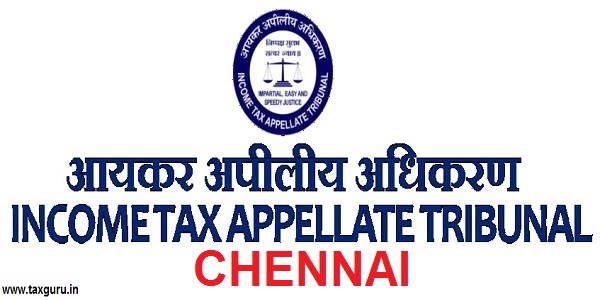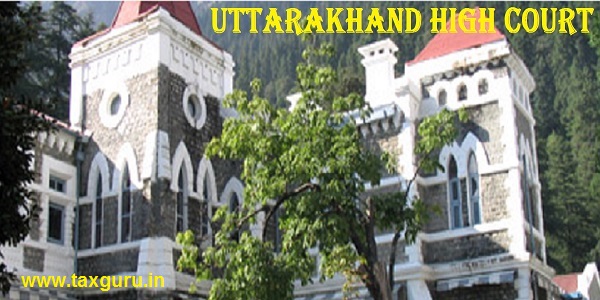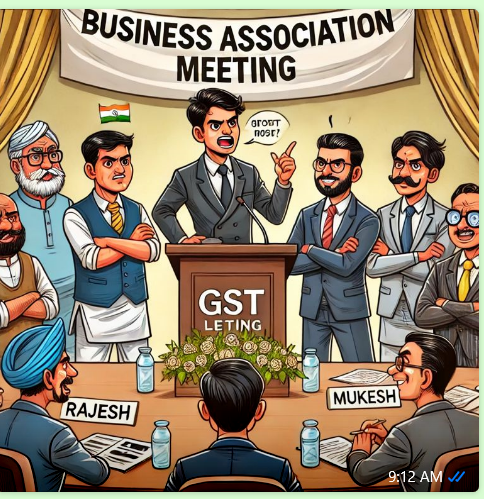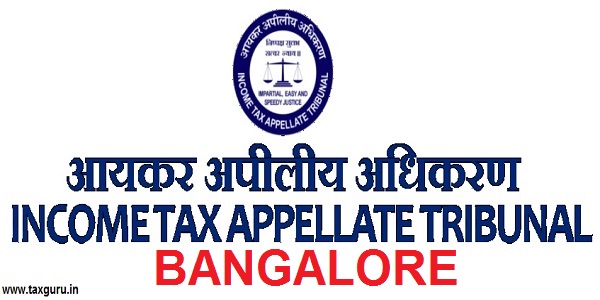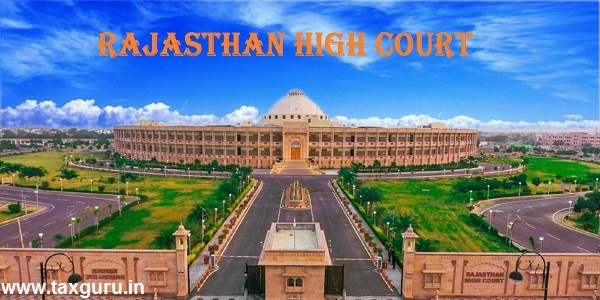With pulsating heart beats and anxiety, when my computer advised me to complete the examination conducted by Insolvency and Bankruptcy Board of India (IBBI) for Insolvency Professional certification purposes on August 9, 2018 at Meerut, I decided to write this article on the role of insolvency professionals with adequate information and a small review of their achievements and tribulations from actual court cases drawn from NCLT/NCLAT/Supreme Court.
Yes, I passed the examination.
Let us continue our article with this happy augury.
This article is based on “Insolvency and Bankruptcy Code, 2016” which has been enforced from different dates.
Enrollment and registration of person to act as an insolvency professional
Part 4, Chapter 4, Section 206-208 narrates the ways to become an insolvency professional. One has to get enrolled as a member of an insolvency professional agency and then get registered with IBBI.
One of the following qualifications can satiate your quest to know the eligibility of the candidate:
“A chartered accountant, a cost accountant , Company Secretary or a lawyer with 10 years of experience or a management man with graduation with 15 years of experience is eligible to think of becoming an insolvency professional.”
Gruesome 2 hours test
A gruesome examination of 2 hours is conducted for 94 questions based on I&B Code 2016, and its rules/regulations, 18 commercial laws and more from SEBI/Indian constitution or any other subject on current finance. Why not I baffle you with some questions which may or may not appear in your test paper, computer based and no two candidates getting the same paper:
- Under Arbitration and Reconciliation Act, when will the arbitration start; can one approach the court during the deliberations.
- Any number of permutations and combinations of Partnership Act 1932, LLP Act 2008, stimulated queries from The Limitation Act, 1963.
- Calibrated attacks from SARFAESI Act, 2002, The specific Relief Act, 1963.
- I do not want to avoid the charm of facing other scintillating questions from Acts/General awareness, Corporate Finance and Financial Analysis (what is LIBOR?) and others.
- Two stimulated questions actually based on live examples of court cases related to NCLT/NCLAT with ample knowledge of IBC Code, banking parlance or DRI/NCLT/SARFAESI Acts. Unless one is thorough with the codes/regulations, the chances of scoring high marks is not a distinct possibility.
- The question papers laced with 5 actual court judgements (2 from NCLT, 2 from NCLAT and one from Supreme Court or High court) test the candidate’s memory, timely recollection of facts based on legal logic or stipulations actually quoted by the judges.
The question paper ensures that guess work of answers is returned with minus 0.25 marks which abruptly decimates the capacity of the candidate to prepare well, attempt with confidence and also definitely get punished for wild imagination.
I got 53.5%, 59.25% (when my heart sank heavily) and finally with 63.50% a bright silver lining after a lot of hard work for 6 months or more. Only 6000 pages of three text books, actual bare/commentary of acts, three web sites of ICAI/ICSI for insolvency examinations containing nearly 3000 questions. ICAI ensures actual stimulated computer tests for realistic preparations. ICSI Institute of Insolvency Professionals gives three mock tests.
Some more tit bits about choosing the test centers.
Unfortunately, IBBI allows only 3 candidates per day per center like Delhi/Gurugram/Ghaziabad (all combined as one center) which entails one from this area to get a likely examination date around October or November 2018, resulting in opting for centers outside Delhi like Meerut/Karnal etc. Incidentally, due to some festival in Meerut, I was the only candidate to have a lonely feeling while taking the test.
Now that I have qualified from this roller coaster test, what should I do?
You may recollect that I have mentioned enrollment/registration in an earlier para but before undertaking the steps, IBBI now insists on attending 50 hours training for those who have qualified the test with the approved insolvency professional agencies as per the training schedule given below:
(IBBI Circular IPA/011/2018 Dated 23rd April 2018.)
Matters to be covered along with hours:
Insolvency and Bankruptcy norms – 2 hours; Drafting and filing of applications for initiation of CIRP- 2 hours. Familiarization with forms – 2 hours; Taking over the corporate debtor as IRP/RP – 3 hours
Managing the corporate Debtor – 2 hours; Claims with examples – 2 hours; Conduct the first meeting of CoC and subsequent meetings-3 hours; Witness the proceeding before NCLT/NCLAT – 4 hours; Detection and filings for various types of transactions like undervalued, preferential, extortionate, forensic audit etc. Moratorium – 1 hour; Fees and expenses – 2 hours; Information memorandum – 2 hours; Invitation for Resolution Plans-3 hours; Eligibility for Resolution applicant – 3 hours; Resolution Plans – 3 hours. Liquidation Process – 4 hours; Disciplinary aspects – 2 hours; Governance- 3 hours; Management – 3 hours.
Total – 50 hours.
As per my personal discussion with ICSI Insolvency agency, 92 persons attended the training program at Noida, UP from 6th August 2018 to 12th August 2018.
The system of identification, training or allotment of work for them either through IBBI or any nationalized banks panel is functioning as per the original planning. Hundreds of borrowers/financial creditors/operational creditors have started using the concept of Insolvency and Bankruptcy Code 2016 followed by many regulations.
Now a time has come where the effectiveness of the system of Insolvency Professional needs to be assessed. The obvious choice will be on the basis of the behavior of any one IP and the consequent reaction in NCLT or at NCLAT.
I would like to discuss two cases where due to improper handling of a case at NCLT both at Adjudicating authority level as well as IP level, gross injustice and huge loss was caused. Adequate justice was given at NCLAT level. We straight away venture into the first case as under:
Under NCLAT, New Delhi jurisdiction:
Company Appeal (AT) (Insolvency) No. 5 of 2017 (arising out of Order dated 17th February, 2017 passed by National Company Law Tribunal, Mumbai Bench, in C.P. No. 12/I&B/NCLT/MAH/2017) in the matter of:
M/s. Star log Enterprises Limited … Appellant (Corporate debtor)
Vs
ICICI Bank Limited … Respondent (Financial creditor)
Brief details of the case:
During the discussion, the words Star log will represent corporate debtor while ICICI will indicate the financial creditor.
The corporate debtor initiated the action under Section 61 of I&B Code, 2016 against an ex- parte order passed by NCLT(Bombay) through NCLAT, New Delhi for which orders were issued by NCLAT on Feb 17, 2017.
The following narration of the case, a historic one in the history of Insolvency depicts the cruel attitude of the Insolvency Resolution Professional (IRP) after being appointed by NCLT, Bombay. The totally unauthorized activities of ICICI bank in violation of Joint Lenders Forum guidelines from RBI are equally baffling and reveal unhelpful attitude of ICICI Bank.
The borrower had finance from a Joint Lender Forum which was led by ICICI Bank. The said bank issued a demand notice on the borrower on 6th February 2017 for Re 10.02 Crores which reached the borrower on 8th February 2017.
The borrower being a growing concern with good order book from GE Industrial India Pvt Ltd was frequently requested GE to release of funds for operating cost like salaries of experts who handled the equipment’s, insurance or engaging a safety officer as per legal/safety requirements at the sites of GE.
During the Joint Lenders Forum discussions which took place under the leadership of ICICI bank during the years 2014-2016, the question of proceeding with individual asset level action instead of rectification of corrective action for adjustment of outstanding liabilities was discussed. But the consensus opinion was not to approach legal measures for adjustment. Even though these decisions were taken under the leadership of ICICI bank, it seems it wanted to take individual action under section (7) I&B Code, 2016 without involving the other lenders. Quite an unusual step, the bank filed its application with NCLT, Bombay for a default of Re 27.7 Crores which sum was never demanded even from its borrower, Starlog. In reality, it was an exaggerated amount not based on bank records.
Surprisingly, NCLT did not send a copy of the application of ICICI bank to Starlog in violation of the court judgement under M/S Innovative Industries Limited Vs ICICI Bank and various other court cases in violation of natural justice.
But unilaterally, NCLT admitted the application of ICICI bank and Insolvency Resolution Professional was appointed who took over the control of the management of the going concern, namely, Starlog.
The facts of the case reveal that though repeated emails were sent by GE to its customer, Starlog to release funds for maintenance of cranes of the Starlog which were being used at the sites of GE, no action was taken by the IRP causing huge loss of Re 2.7 Crores to Starlog along with cancellation of all orders. Immeasurable loss of human resources who were the back bone of the company also resigned sighting mental agony. This also made the company an unlikely one to run on profitable line.
Apart from this callous action, the IRP in contravention of Section (18)(1) of I&B Code 2016 started interfering with the working of the subsidiaries of the borrower. He even gave instructions to change the pass word of the bank accounts. Ultimately, all the orders of good customers were cancelled.
Decision of NCLAT, New Delhi on the application of Starlog
I have reproduced some citations from the judgement which is quite revealing.
“Showing an incorrect claim, moving the application in a hasty manner and obtaining an ex-parte order from the ‘adjudicating authority’ which admitted such an incorrect claim, the Financial Creditor cannot disprove its mala fide intention by stating that the claim submitted is correct amount.
Admittedly the impugned order is ex-facie illegal and ought to be set aside by the Appellate Tribunal. For the reasons aforesaid, we set aside the ex-parte impugned order dated 17th February 2017 passed by ‘adjudicating authority’, Mumbai Bench in C.P. No. 12/I&BP/NCLT/MAH/2017 and allow the appeal.
In effect the appointment of Interim Resolution Professional, order declaring moratorium, freezing of account and all other order passed by ‘adjudicating authority’ pursuant to impugned order and action taken by the Interim Resolution Professional, including the advertisement published in the newspaper calling for applications are declared illegal.”
Finally, the borrower M/S Starlog was freed of the rigor of the law and allowed to get his own management and run the company. Though I did not undertake any research, the concerned IRP would have faced investigation from IBBI and could have lost his certification. ICICI Bank was advised to pay the cost of Re 50,000 to NCLAT.
Our view
Rarely one comes across a case where both the bank as an applicant under section (7) of I&B Code 2016 as well as Insolvency Resolution Personal get unpleasant observations from NCLAT. The purpose of this example is to emphasize on future Insolvency Professionals to clearly understand the role of an IRP which has been laid down under section (17), (18), (25), as a liquidator under section (35), as a resolution professional under fast track corporate resolution process (not yet implemented, though) or appointment as Bankruptcy trustee under section 125 of I&B Code 2016. The basic principle is only to help the industry as a going concern or liquidate it in due course as per laid down norms.
Case Number 2
Under NCLAT, New Delhi jurisdiction,
M/s. Hotel Gaudavan Pvt. Ltd. & Ors. …Appellants (Corporate debtor) (CD)
Vs.
Alchemist Asset Reconstruction Co. Ltd. & Anr. …Respondents (financial creditor) (FC)
Financial creditor filed an application under section 7 of I&B Code 2016 against CD which was admitted by NCLT, New Delhi (AA) on 16th August 2017; ordered imposition of Moratorium under section 14 of I&B Code 2016. Thus, the said management of CD should have been handed over to IRP for undertaking insolvency resolution process. However, CD undertook the following steps to thwart the orders of AA.
- Moved a writ petition against AA in the High Court of Rajasthan which was left for attendance at Appellate level.
- Again, a special petition was moved in Supreme court against various activities of AA which again got dismissed on 26th April 2017.
- A petition was moved in Arbitral tribunal against AA and IRP which was also set aside by the supreme court.
- Meanwhile, the Board of Directors refusing to cooperate with the orders of AA, got a FIR lodged against IRP which was also cancelled by the supreme court since only IBBI has the authority to act against IRP.
Finally, taking notice of the sorry state of affairs of the case, Supreme Court ordered the cost of Rs 25000 on three of the borrowers and allowed the continuation of IRP with his work.
Conclusion
We are aware that an insolvency professional can render services under a fresh start process, in an individual resolution process, corporate insolvency resolution process, individual bankruptcy process, fast track insolvency process though instructions have not yet been issued and handle the work related to liquidation of corporate debtor. Hundreds of insolvency cases have been referred to various NCLTs and necessary action started at various levels. Advocates belonging to various ages and experience are handling the work related to their experience and capabilities.
I introduced the reader to the tough process of qualifying in the examination even with personal example. It is a fact that very few IRPs nowadays pass the test conducted by IBBI as can be viewed from the following information culled out of their web site:
- Total number of members of IBBI as on date – 1956 out which the details of members joining in July month (2018) were 33 and in August, 2018, month 27.
However, with the increase in number of insolvency cases including those with very high defaults and the positive trend of successful completion of the cases through the laid down route and less availability of Insolvency Resolution Professionals, their value as well as the earning capacities are showing an increasing trend. With IBBI considering IRP as intellectual wealth of the nation, I request Chartered Accountants/Company Secretaries/Cost Accountants/Management professionals to consider IRP as a promising route to a successful future. The successful acceptance of retired bankers in this field with proper certification has also helped to show excellent results. Being an ex – banker, I do salute them. Over all, we may associate ourselves in building a modern and industrial India.
Reference
1. IBBI Website:
http://www.ibbi.gov.in/register.html
2. ICSI Institute of Insolvency Professionals (from Company Secretary)
http://w.w.w.icsiiip.com/registration
3. Institute of Chartered Accountants
4. Insolvency and Bankruptcy Code 2016.
5. Court cases:
a. Starlog Vs ICICI Bank
https://elearning.iiipicai.in/chapters/nclat-cases/380/
b. Hotel Gandawan Vs Alchemist Asset Reconstruction Company
https://elearning.iiipicai.in/chapters/supreme-court/394/
c. A large number of court cases can also be found in Indian Institute of Insolvency Professionals of ICAI.
https://elearning.iiipicai.in/









